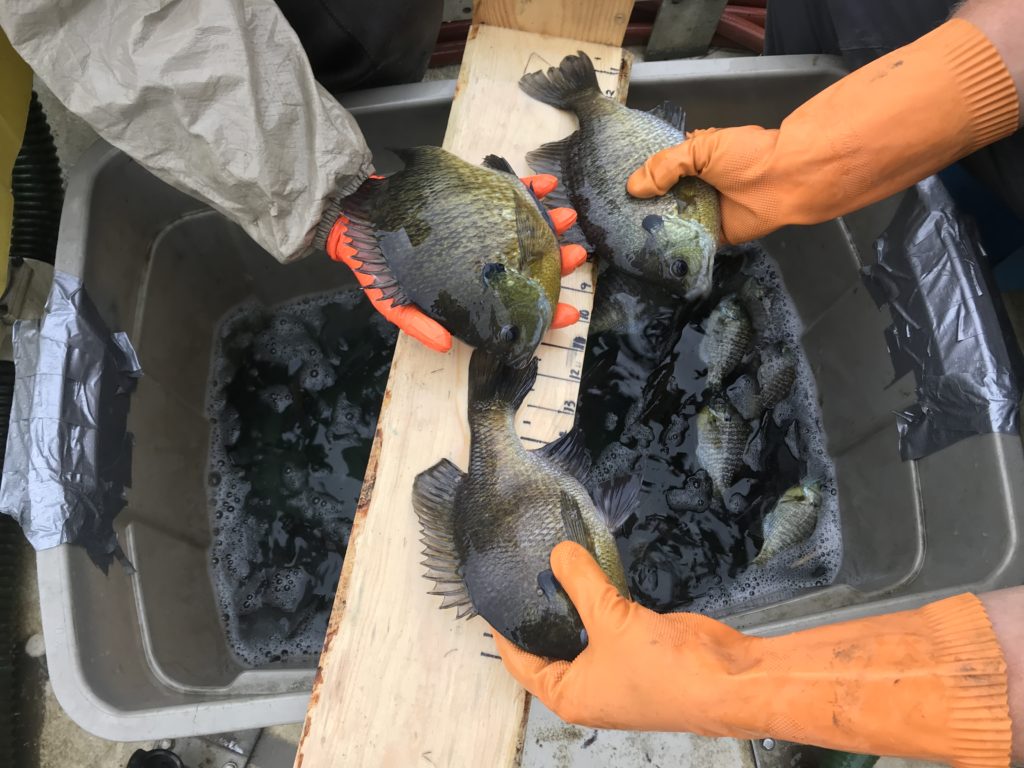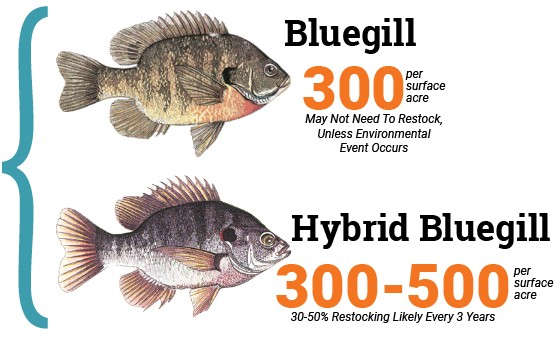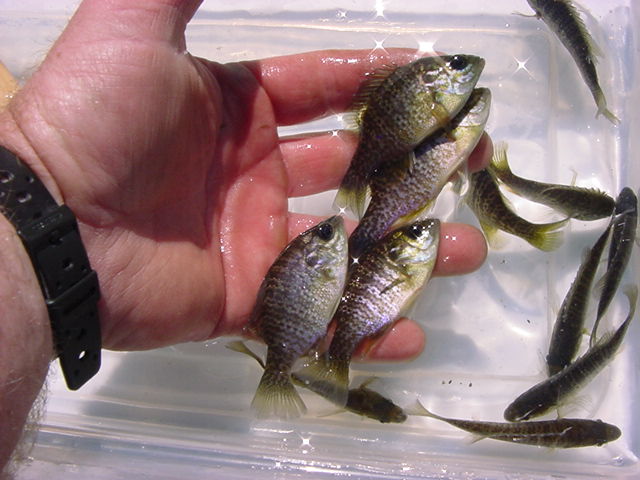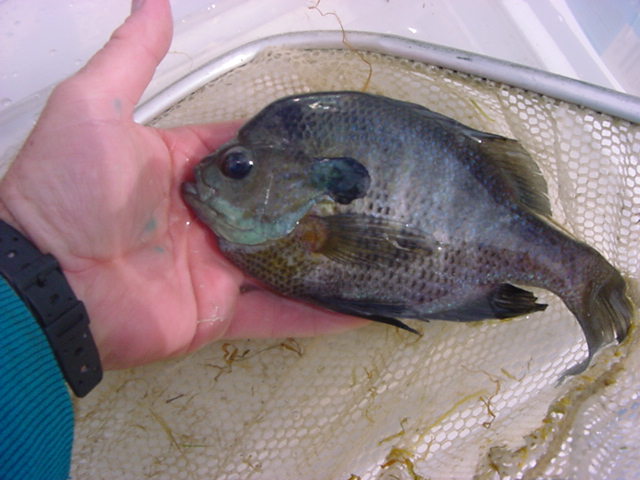What Should You Add to Your Pond?
By Joey Berg
Aquatic Field Biologist, Fisheries Specialist
“Bluegill? Hybrid Bluegill? No Bluegill at all?” There are definitely some considerations when deciding how to stock (or restock) a waterbody. All waterbodies are different and so are the goals of those who use those waterbodies. There are many important items to consider when deciding if, or what type, of Bluegill is right for you.
Differences between Bluegill and Hybrid Bluegill

First, I want to discuss a few details about Bluegill and Hybrid Bluegill.
Bluegill tend to do very well in Wisconsin in terms of reproduction and growth. Most often Bluegill will require some control measures to prevent excessive reproduction or stunting. Bluegill will generally spawn in mid-late spring to early summer. They generally measure around 7.5 inches as an adult although yes, they get bigger!!
Hybrid Bluegill (male Bluegill X female Green Sunfish) tend to survive very well. However, you should restock them if you want to maintain them properly. We do hear “My hybrids are spawning” or “I have thousands of small hybrids” so you shouldn’t need more. Right? WRONG! Hybrid Bluegill are MOSTLY sterile. Some, however, can still reproduce. Hybrid Bluegill do not make more Hybrid Bluegill! Hybrid Bluegill reproduction can potentially make either normal Bluegill or Green Sunfish (which is the other species needed to make them “hybrids”). This is seen as a very large negative! Green Sunfish are very aggressive, are known for biting swimmers (your small hairs especially), and they are small/stunted fish. However, Hybrid Bluegill get large, very large. They also get big fast which can be a blast!
How your choice affects your pond/stocking strategies

Management Implications
One drawback to Bluegill can be excessive reproduction to the point where they outcompete each other. Imagine a large family all trying to eat one slice of bread vs. one person with that same slice of bread! The more Bluegill (or any fish for that matter) you have, the more food the waterbody needs to have. You will need some sort of predator to control the unwanted, excessive reproduction unless you really like to eat fish. Largemouth Bass tends to be a great choice to control Bluegill. In addition, keeping Bluegill that are the most common size in the pond will give them some more room to live and grow. The largest Bluegill should be released back into the pond to provide strong competition so the younger Bluegill devote energy for growth rather than to spawn early and at a smaller size.
Unwanted Hybrid Bluegill reproduction can be controlled in a similar way to normal Bluegill control. If you stock a healthy level of predators, you should be fine to stock Hybrids without negative effects. Since they grow fast, they also need more food. Pond owners should know they need to restock minnows more frequently to really see these fish grow!
Stocking Rates

A good general rule of thumb when stocking Bluegill is 300 fish per surface acre. This assumes you plan on having predators in the pond and you have sufficient habitat (water quality, possibly aeration, and good water depth).
If you plan on stocking Hybrid Bluegill, figure 300-500 fish per surface acre. This number can be a bit higher than regular Bluegill due to the fact that they are not reproducing to make more Hybrids.
When stocking either Hybrids or Regular Bluegill, you need to plan ahead. Consider how long until you stock again.
How Often Do I Need to Restock?
In many ponds with Bluegill, you will not need to restock them without some sort of winterkill or introduction of unwanted guests (otters, larger predator fish). They typically reproduce well ….sometimes too well. If you have a winterkill, a full restocking of Bluegill may be needed.
Since you shouldn’t account for the reproduction of Hybrid Bluegill when considering a stocking plan, you should consider stocking well within the life span of the fish to keep hybrid numbers strong. You should consider restocking 30-50% of the Hybrid Bluegill about every 3 years. However, increase this number If you like to eat your fish!
If you are planning on stocking Bluegill, Hybrid Bluegill, or have questions on what would work best for you, please contact us today!

